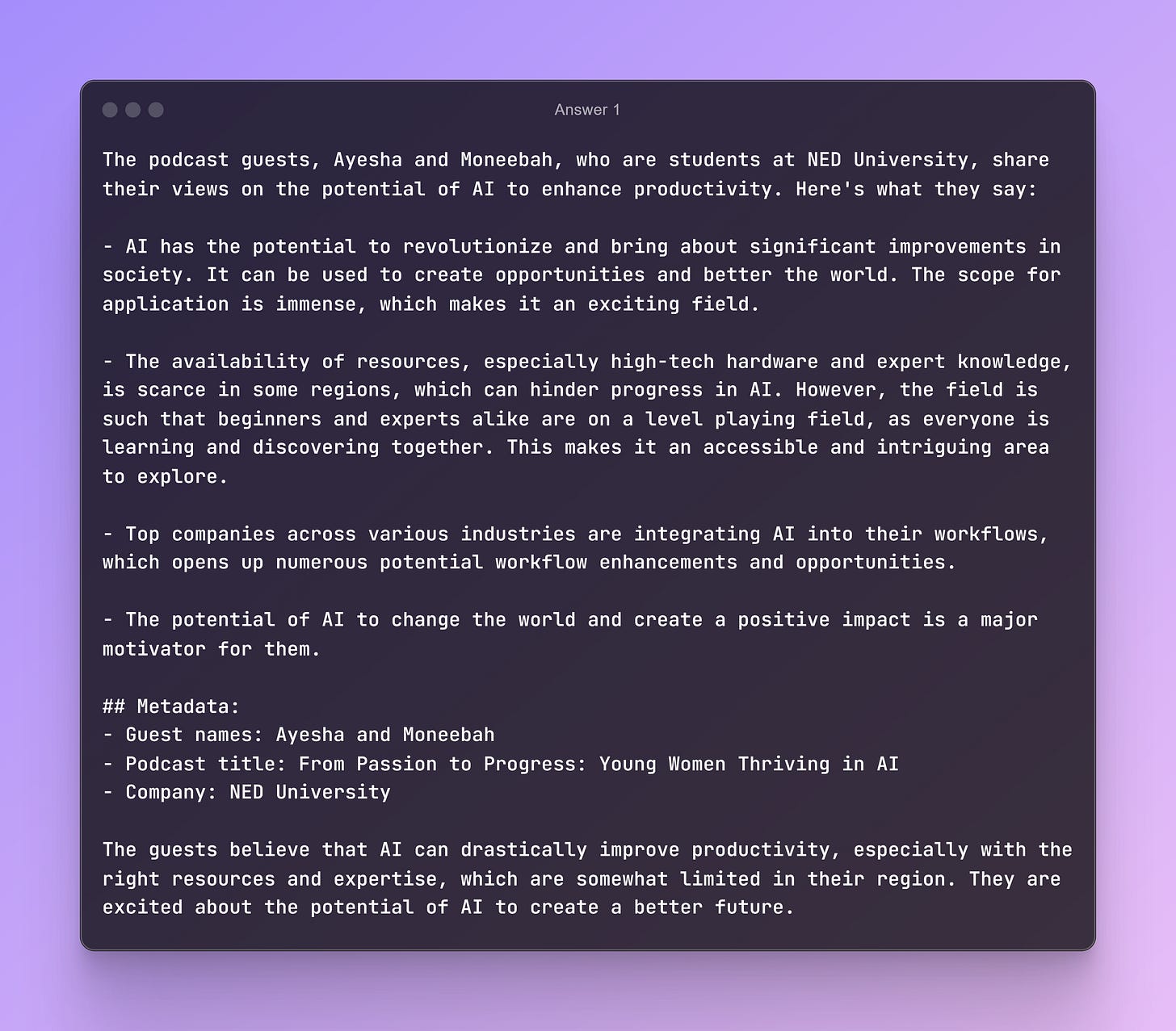Boost Your Workflow: Harnessing AI for Enhanced Productivity
AI in productivity
Artificial Intelligence (AI) tends to inspire either a lot of enthusiasm or a fair amount of skepticism—sometimes even fear. And that's fine; everyone has their perspective. Personally, I believe AI holds incredible potential to transform how we work, think, create, and boost our productivity in both our professional and personal lives. But let's be real—AI is far from perfect and will always benefit from having humans in the loop.
With the arrival of ChatGPT, the development of AI tools and techniques has accelerated rapidly. We've seen an influx of different chatbots like Perplexity.ai, Cohere’s Coral, Anthropic’s Claude, and more. These tools aren’t just for tech enthusiasts; I've seen people use them for all kinds of everyday tasks, like writing cold emails, planning travel, organizing events, and producing content. The ones with mobile apps have especially caught on to these mundane chores.
Back when I was in academia, my peers and professors often turned to chatbots and other tools to give their productivity a boost. A few examples included using Canva for creating presentations, scite.ai for finding citations, ChatPDF to read and analyze research papers faster, SciSpace to streamline writing and publishing, GitHub copilot for pair programming, and code review—you name it. These tools are all powered by Large Language Models (LLMs) and their variations, doing everything from semantic search to text generation.
The great thing is you don’t need to be an expert to use these tools effectively; you just need to know how to use them to your advantage. Personally, I rely on ChatGPT, Perplexity, and Canva for various tasks. One of my go-to prompts for ChatGPT is “Correct the grammar of the following text.” I remember when I was writing my PhD thesis, I’d ask the bot to help me review my drafts before submitting them for formal review. The bot does a fantastic job of refining your content, suggesting improvements, and even recommending additional topics to explore. Would I use its suggestions exactly as is? No, absolutely not. I don't fully trust the output, but it's close enough to help me review faster and ensure my content is accurate and high-quality.
To enhance my productivity, I built a chat module based on my podcast data. This allows me to go back, chat with the data, and quickly refresh my memory on what my guests had to say about any given topic. When I’ve asked some of my podcast guests if they think AI helps increase productivity, the answer is usually a resounding yes. Think of these systems as your assistant. They help you get more done, more efficiently.
Here are some answers that I asked my podcast-chat application:
The answer to this question was:
I changed the query and asked a more general question:
In a world where time is often our most precious resource, AI tools offer a way to work smarter and more efficiently. Whether you're navigating the complexities of academia, managing everyday tasks, or revisiting valuable conversations from your podcast, AI can be a powerful ally. It's not about replacing human creativity or judgment, but about enhancing them. By embracing these tools and integrating them into our workflows, we can unlock new levels of productivity and keep pushing the boundaries of what's possible.
Tell me in the comments how you are using these AI tools and which tools.






